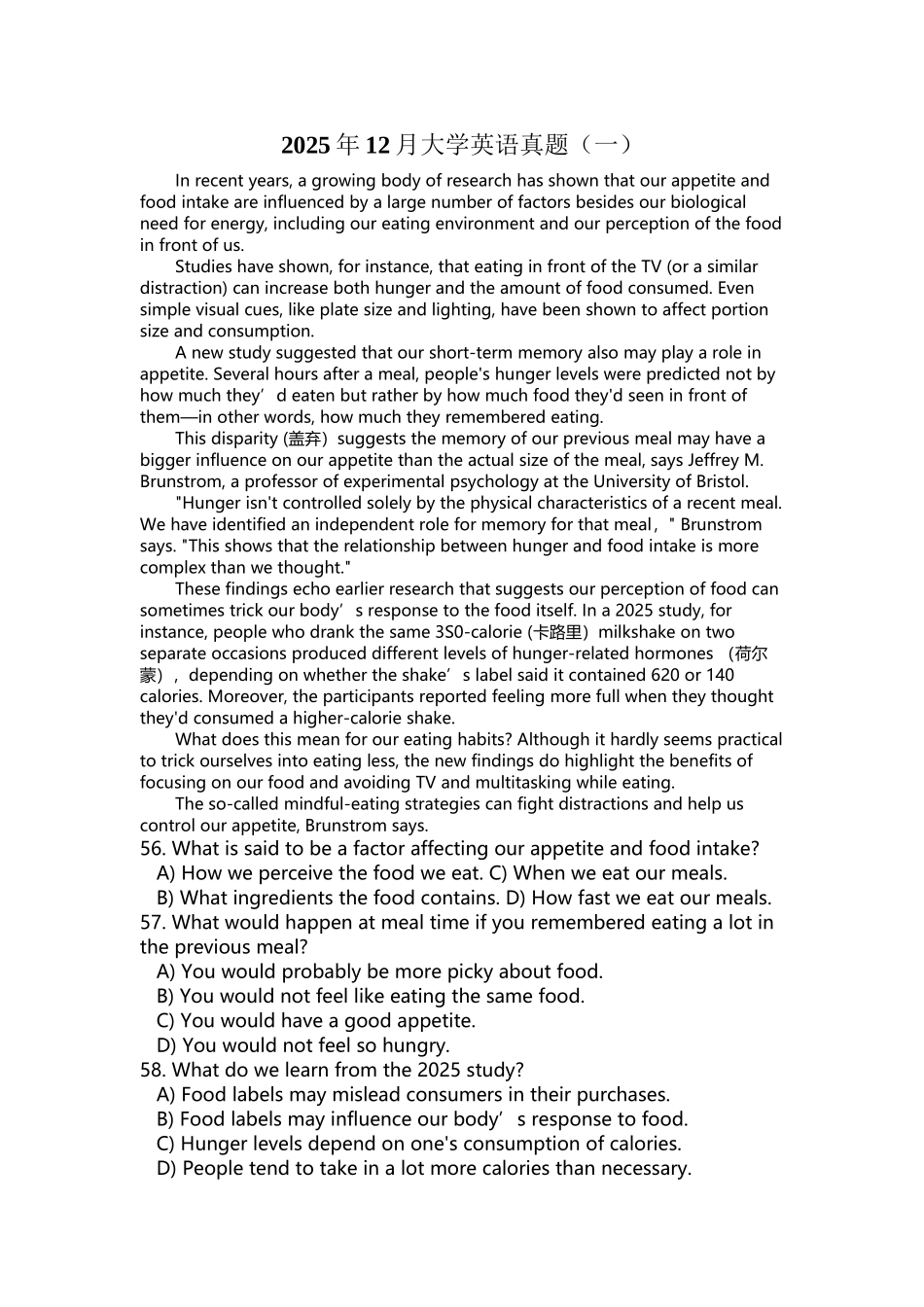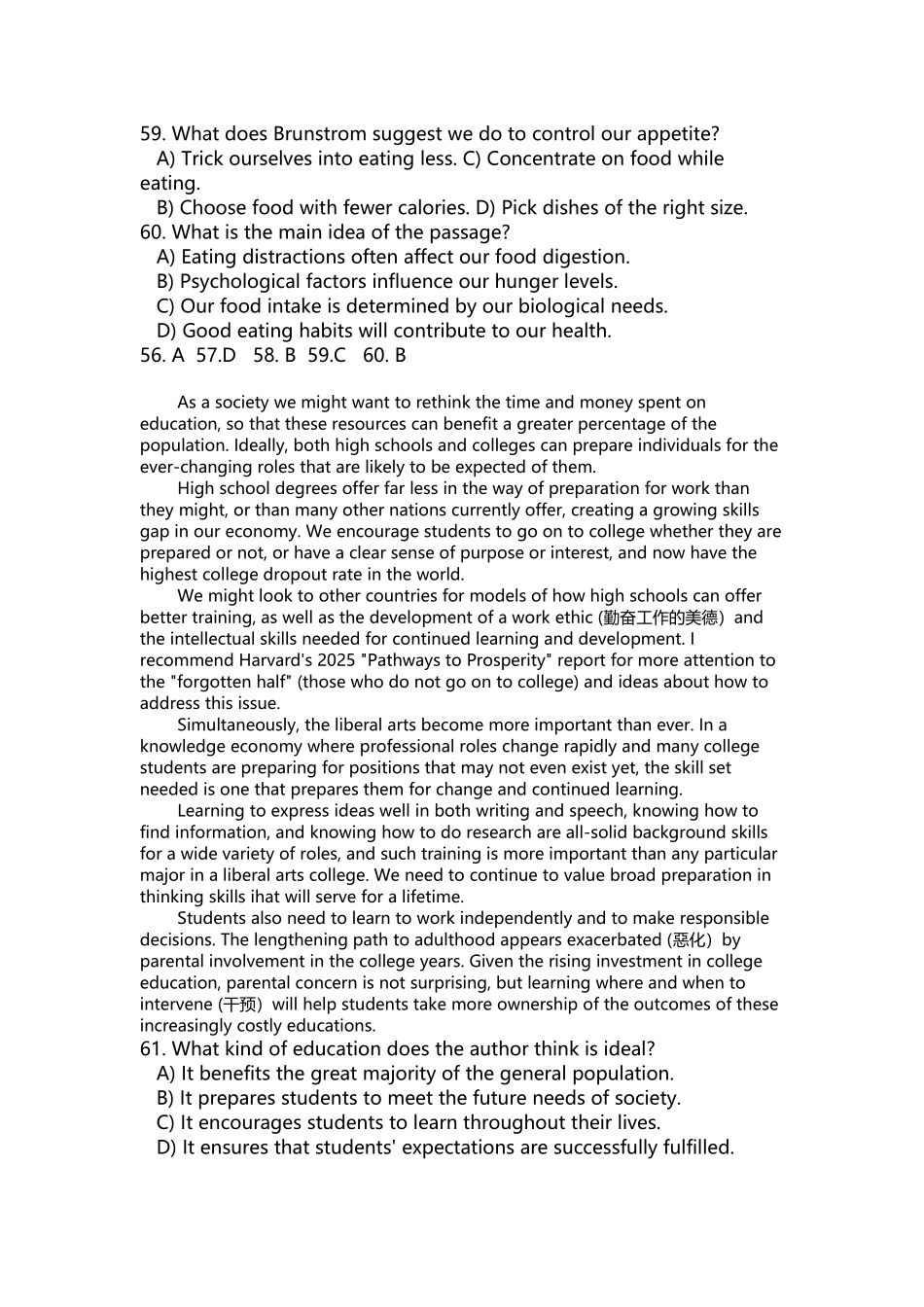历年英语四级阅读理解真题及答案(18 页)Good is good, but better carries it.精益求精,善益求善。2025 年 12 月大学英语真题(一)In recent years, a growing body of research has shown that our appetite and food intake are influenced by a large number of factors besides our biological need for energy, including our eating environment and our perception of the food in front of us.Studies have shown, for instance, that eating in front of the TV (or a similar distraction) can increase both hunger and the amount of food consumed. Even simple visual cues, like plate size and lighting, have been shown to affect portion size and consumption.A new study suggested that our short-term memory also may play a role in appetite. Several hours after a meal, people's hunger levels were predicted not by how much they’d eaten but rather by how much food they'd seen in front of them—in other words, how much they remembered eating.This disparity (盖弃)suggests the memory of our previous meal may have a bigger influence on our appetite than the actual size of the meal, says Jeffrey M. Brunstrom, a professor of experimental psychology at the University of Bristol."Hunger isn't controlled solely by the physical characteristics of a recent meal. We have identified an independent role for memory for that meal," Brunstrom says. "This shows that the relationship between hunger and food intake is more complex than we thought."These findings echo earlier research that suggests our perception of food can sometimes trick our body’s response to the food itself. In a 2025 study, for instance, people who drank the same 3S0-calorie (卡路里)milkshake on two separate occasions produced different levels of hunger-related hormones (荷尔蒙)...


